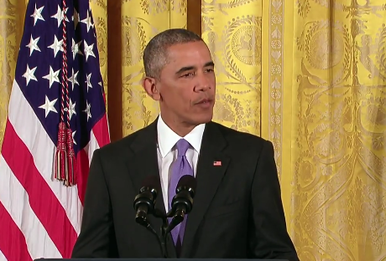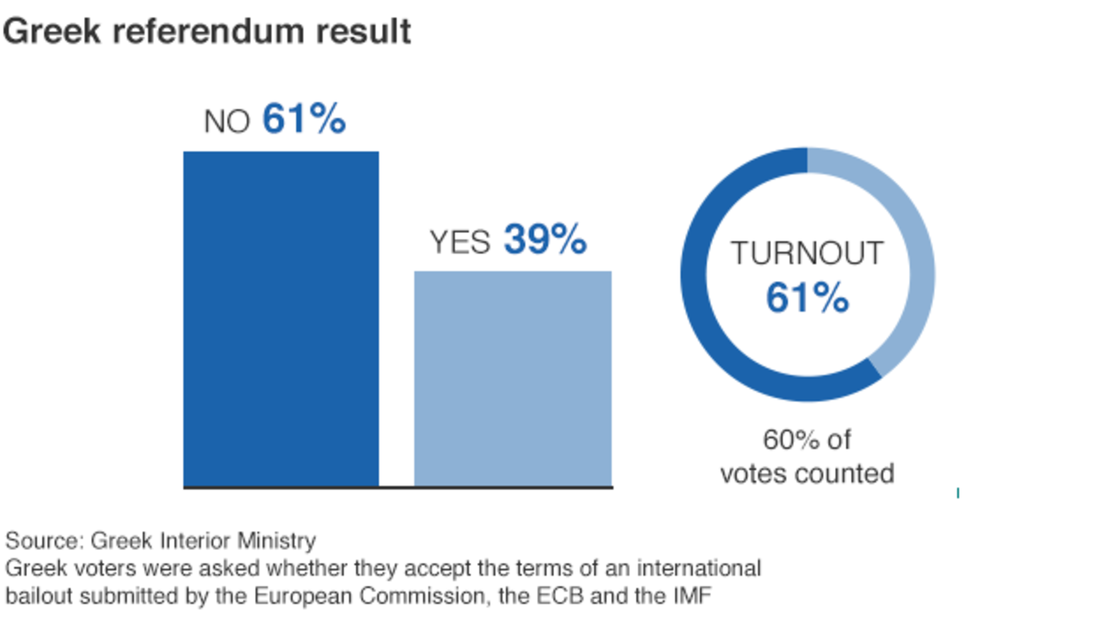|
Banks in Greece open today to significant lines, however, there is a notable tax hike. Read more below: This article originally appeared on NBCnews.com
Greeks woke up Monday morning to a new era: banks were finally open after being closed down for three weeks but new taxes meant coffee, tea and even condoms all cost more. In downtown Athens, people lined up in an orderly fashion as the banks unlocked their doors at 8 a.m., taking a number and reading the paper as they waited for their turn at the till. Many restrictions on transactions, including cash withdrawals, remained, however. The Greek government kept the daily cash withdrawal limit at 60 euros ($65) but added a weekly limit of 420 euros ($455) that will be available beginning Sunday. This means depositors who don't make it to the bank on Monday to withdraw cash could pull out 120 euros ($130) on Tuesday instead, and so on, so Greeks don't have to feel they need to visit an ATM every day. Bank customers will still not be able to cash checks, only deposit them into their accounts, and they will not be able to get cash abroad with their credit or cash cards, only make purchases. There are also restrictions on opening new accounts or activating dormant ones. Many goods and services also just became more expensive as a result of a rise in Value Added Tax approved by Parliament on Thursday, among the first batch of austerity measures demanded by Greece's creditors. Lawmakers also agreed to deep reforms in Greece's pension system including a gradual phasing out of all early retirement options. Click here to read the entire article from NBCnews.com
0 Comments
Watch President Obama deliver remarks at a press conference on the Iran deal, in Washington, DC, July 15, 2015.
President Obama's Press Conference on Iran press release from Team Ginther Last month, Columbus City Council President Andrew Ginther asked City Attorney Richard Pfeiffer to examine the way the City handled the contracting of the photo red light program, as well as whether the City has the ability to terminate the contract.
The City Attorney concluded the City acted appropriately with the photo red light program. Additionally, the City Attorney has advised the Mayor that the City has the contract authority to terminate the Redflex contract. "While the city attorney found that the law was followed in awarding the contract, we now know that Redflex clearly had a culture of doing things that were inappropriate, improper and, in some cases, illegal," said Council President Andrew Ginther. "As a result, I support Mayor Coleman's decision to end the city's contract with Redflex and believe that action is in the best interest of the people of Columbus." Press Release from Team Ginther Andrew Ginther also posted on facebook: "While the city attorney found that the law was followed in awarding the contract, we now know that Redflex clearly had a culture of doing things that were inappropriate, improper and, in some cases, illegal. As a result, I support Mayor Coleman's decision to end the city's contract with Redflex and believe that action is in the best interest of the people of Columbus." More Americans records were violated from government personnel data hack than we originally thought7/9/2015 this article was originally published on Reuters.com "Estimate of Americans hit by government personnel data hack skyrockets" Data breaches at the U.S. government's personnel management agency by hackers, with suspicions centering on China, involved millions more people than previously estimated, U.S. officials said on Thursday.
The Office of Personnel Management (OPM) said the stolen data included Social Security numbers and other sensitive information on 21.5 million people who have undergone background checks for security clearances. That is in addition to data on about 4.2 million current and former federal workers that was stolen in what the OPM called a "separate but related" hacking incident. Because many people were affected by both hacks, a total of 22.1 million people were affected, or almost 7 percent of the U.S. population. Those exposed included 19.7 million who applied for the clearances, plus 1.8 million non-applicants, mostly spouses or co-habitants of applicants, the agency said. The breach had already been considered one of the most damaging on record because of its scale and, more importantly, the sensitivity of the material taken. The United States has identified China as the leading suspect in the massive hacking of the U.S. government agency, an assertion China's Foreign Ministry dismissed as "absurd logic." Asked during a conference call with reporters on Thursday whether China was responsible, a White House National Security Council official, Michael Daniel, said "we're not really prepared to comment at this time on the attribution behind this event." Daniel, special assistant to the president and cybersecurity coordinator at the National Security Council, said that "at this point the investigation into the attribution of this event is still ongoing and we are exploring all of the different options that we have." The incidents have outraged members of Congress and worried the millions of Americans affected since they were revealed last month. Some lawmakers have called for the resignation of Katherine Archuleta, the OPM director. AGENCY CHIEF WILL NOT RESIGN Archuleta said neither she nor OPM chief information officer Donna Seymour would be resigning. "I am committed to the work that I am doing at OPM," Archuleta told reporters. "I have trust in the staff that is there." OPM said in a statement that its investigation had found no information "at this time" to suggest any misuse or further dissemination of the information stolen from its systems. It said some records included findings from interviews conducted by background investigators and about 1.1 million include fingerprints. Background investigation records contained some information on mental health and financial history provided by security clearance applicants and others contacted during their investigations. OPM said there was no evidence that separate systems storing information on health, financial, payroll and retirement records of federal employees were affected by the hacking. OPM said it is highly likely that anyone who went through a background investigation after 2000 was affected by the cyber breach. Those who underwent background checks before 2000 might be impacted but it is less likely, the personnel agency said. The Social Security numbers are just the tip of the iceberg. The critical information, which was not encrypted, involves a complete rundown of the personal lives of some 90 percent of applicants for security clearances, mainly excepting most undercover CIA agents. That includes drug use, romantic histories and close friends abroad of those in the military, National Security Agency (NSA) and sensitive State Department posts, among many others, essentially a road map for what weaknesses might be used for blackmail by a foreign power. Though not attributing the attack in public to China, investigators have told Reuters that their prime suspect is a team tied to that nation’s Ministry of State Security. The evidence includes a specific piece of malicious software and the use of a stolen digital certificate, both of which had been seen in only a small number of attacks that had been tied to the same group. Dmitri Alperovitch, chief technology officer at security firm CrowdStrike, said his company’s analysis of data about the breach provided by the government made it clear that one or another part of the Chinese government directed the hacking. "It’s a tremendous coup for China," Alperovitch said. (Additional reporting by Joseph Menn and Will Dunham; Editing by Sandra Maler and Bill Trott) (Reuters) source; http://www.reuters.com/article/2015/07/09/us-cybersecurity-usa-idUSKCN0PJ2M420150709
Here are 10 consequences of the vote that could unfold in the next few days:
1. The victory of the "No" camp -- with more than 60 percent of the vote, according to preliminary returns -- will initially lead to a general selloff in global equities, along with price pressures on the bonds issued by Greece, other peripheral euro zone economies and emerging markets. German and U.S. government bonds will benefit from a flight to quality. 2. Having been caught off guard, European politicians will urgently seek to regain the initiative: Chancellor Angela Merkel of Germany and President Francois Hollande of France will meet in Paris on Monday to work on a response. In a perfect world, these leaders would move quickly and effectively with the Greek government to get past the conflict and acrimony that preceded the referendum. This is likely to be difficult, given the mistrust, bad blood and damaging accusations that have poisoned the relationship. 3. Even with those challenges, Greek and European politicians don't have much time to get their act together. The horrid conditions in Greece will get a lot worse before they improve. Without huge emergency assistance from the European Central Bank -- a decision that faces long odds -- the government will find it hard to get money to the country's automated teller machines, let alone re-open the banks. 4. As hoarding increases, shortages of goods, including fuel and food, will intensify. Capital and payments controls will be tightened. The economy will take another worrisome step down, worsening unemployment and poverty. And the government will struggle to pay pensioners and the salaries of civil servants. 5. As a result, the government will be under mounting pressure to issue some type of IOUs to maintain a sense of a functioning economy. If it does, the IOUs will take on the role of a parallel currency, quoted domestically at a discount to the single currency. 6. Outside Greece, a lot of thought will be given to limiting adverse spillovers. The ECB will most likely have to roll out new measures to contain regional contagion, including expanding the current program of large-scale purchases of securities. This will weaken the euro’s exchange rate. In addition, together with the International Monetary Fund -- to which Greece is already in arrears -- officials will be preparing for serial Greek defaults. 7. All parties involved will find themselves slipping into their Plan B mode. This transition will probably be much more traumatic for Greece than for the rest of Europe. 8. With the ultimate goal of countering as quickly as possible the likelihood of further human suffering, pain and uncertainty, Europe has the instruments and institutions to limit contagion and maintain the integrity of the euro zone. But this will require ECB action to be coupled with measures by the European Stability Mechanism and the European Investment Bank aimed at completing a banking union and making progress on fiscal integration. 9. It is quite doubtful, however, that Greece will be able to restore its status as a full member of the euro zone. Indeed, without very skillful crisis management, it is at high risk of becoming a failed state. Rather than just stand by, Europe needs to ensure that Greece's exit from the 19-member euro zone doesn’t also result in its dissociation from the larger European Union. This could involve special membership in an association agreement, for example, 10. Finally, expect an explosion of blame. This unproductive activity may end up delaying Europe's urgent need to internalize the lessons from this sad outcome: A series of broken reform promises by several Greek governments was made worse by political stubbornness, poor analysis and inconsistent follow-through by Europe, which is contributing to the loss of Greece as a functioning member of the family. With two-thirds of ballots counted, results from the Greek referendum show voters decisively rejecting the terms of an international bailout. Figures published by the interior ministry showed 61% of those whose ballots had been counted voting "No", against 39% voting "Yes". Greece's governing Syriza party campaigned for a "No", saying the bailout terms were humiliating. The "Yes" campaign warned this could see Greece ejected from the eurozone. Some European officials had also said that a "No" would be seen as an outright rejection of talks with creditors. But Greek government officials have insisted that a "No" vote would strengthen their hand and that they could rapidly strike a deal for fresh funding in resumed negotiations. Greek banks will reopen by Tuesday, they say. Follow live updates from BBC Reacting to the result, Greek Finance Minister Yanis Varoufakis called it "a big yes to a democratic Europe". He said Greece would be "positive" in negotiations with its creditors. Euclid Tsakalotos, Greece's deputy foreign minister, told Star TV that two developments would allow Greece to pursue "a solution that is financially viable".
"Firstly, the government now has a new popular mandate and the second is the latest [International Monetary Fund] report which says that the Greek debt is unsustainable." Click here to continue reading the Entire Article from BBC.com |
Archives
July 2024
|
Love You Dreaddi | Stopwatch Creative | Colaeb | It's Bigger Than Business Podcast | Terms of Use | Submit | Est. 2014








